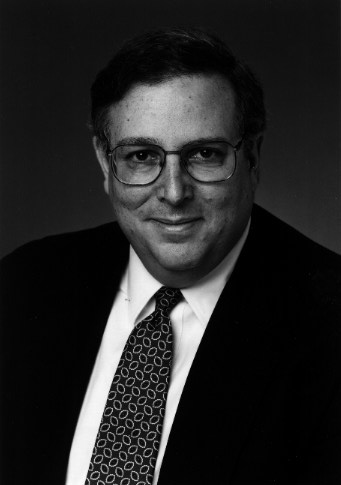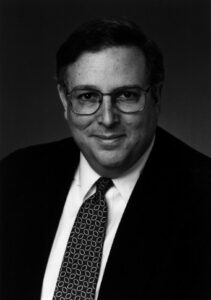Just a few short months ago, a New York medical insurance plan called AssureCare, Inc. hoped to reap hearty profits caring for thousands of society’s poorest people.
Bankrolled by a Florida entrepreneur with a $480 million personal fortune, the HMO seemed likely to snatch up lucrative welfare contracts in several states.

But AssureCare failed to get off the ground. The venture became a casualty of a high-stakes clash between private business and state health regulators over the best means to deliver medical care to the poor. “Our company is in the process of closing down,” AssureCare president Marshall Kelly said in a recent telephone interview from his New York City office. “We decided not to move forward.”
AssureCare’s fate reflects mounting concern in a few states over the consequences of turning to start-up, profit-seeking HMOs to care for poor or disabled Americans on Medicaid.
With an annual budget of $187 billion, Medicaid serves more than 30 million people, 13.6 million through managed care. Budget czars in about 40 states hope managed care will save money and improve patient care, but the shift has sparked a gold rush by corporate health care enterprises.
“The states created the impression that Medicaid is a boom market for HMOs,” said Robert Hurley, an associate professor of health administration at the Medical College of Virginia in Richmond. “But it’s not clear at this point just who will survive.”
In some states, a dozen or more HMO competitors – some with no real track record – have staked claims. Louisiana, which predicted a rapid rollout of Medicaid managed care two years ago, has licensed 25 new plans in anticipation. Michigan officials are sorting through bids from 24 firms to decide which will offer the best service.
Even the nation’s top federal Medicaid regulator shies away from forecasting the effects on the poor – or taxpayers – from this fitful, state by state, scramble to privatize welfare medicine. “We are, without a doubt, in a health care revolution and as with any revolution, the outcome is unpredictable,” Bruce C. Vladeck, administrator of the U.S. Health Care Financing Administration, said in remarks prepared for a December 1996 speech.
The heated market alarms some advocates for the poor, who predict a chaotic shuffle of welfare clients through impersonal health-care schemes with few ties to their communities, beyond the lure of quick cash. Boosters of managed care counter that little evidence exists to conclude profit-seeking HMOs provide suspect care. They add that successful HMOs offer low-income people a chance to improve their overall health through ready access to doctors and preventive care.
Most Medicaid regulators agree. Still, states are tightening standards rather than freely handing out multi-million dollar contracts to untested HMOs, a major policy turn. A few years ago, some states were so eager to attract HMOs that they made minimal demands on them, often with scandalous results. Regulators now feel they can afford to be more fiscally cautious and selective, especially because HMO payment rates have allowed for tidy profits and new operators are lined up for a shot at the Medicaid market – at least for now.
“Many states are starting to raise the barriers to entry and making this business a lot less lucrative,” said AssureCare president Kelly, whose HMO tried, without success, to open Medicaid plans in Georgia, New York, Vermont and Maine. “The market is cooling off and maturing. The window of opportunity is over.”
AssureCare began life in 1995 with an impressive pedigree in Abraham D. Gosman, whose business empire has run from New England nursing homes to Florida real estate. Now chairman and chief executive officer of PhyMatrix, a medical practice management company in West Palm Beach, Gosman’s wealth is pegged by Forbes at $480 million. Gosman, AssureCare’s chairman of the board, had no comment for this article.
Despite Gosman’s holdings, AssureCare faced a tough fight in Vermont. Doubting the HMO’s ability to attract enough doctors and hospitals to guarantee care to 22,000 patients, Vermont’s Health Care Authority in May 1996 denied it permission to open. Officials also fretted over the fact that AssureCare had never treated patients anywhere. The HMO sued to reverse the decision, but lost in November 1996.
AssureCare also hit obstacles in Maine, where regulators granted it a provisional HMO license in September 1996. The state required $12 million in reserves, money insurers must put up to protect state taxpayers in the event the company fails. AssureCare backed out of Medicaid, rather than post the high Maine bond, according to company President Kelly. He also said a decision by Georgia regulators to raise requirements for HMO cash reserves dissuaded the firm from opening there. Add in anticipated cuts in Medicaid payment rates and Kelly is not optimistic that HMOs will be able to live up to their potential to help reform Medicaid. “The states have to make it attractive enough for the plans to be interested in Medicaid,” said Kelly. “They cannot squeeze them too hard.”
Many regulators concede they face a tough mission trying to fashion HMO standards capable of protecting patients and the public treasury without overburdening the industry or squeezing profit margins so tightly health plans simply desert the disadvantaged.
Others see more conflict as inevitable because several large states, New York and Florida are two, have cut payment rates and others will follow. “It’s a collision course,” said Virginia professor Hurley. “Some of these firms are in the Medicaid business only because of the profits. If the profits evaporate they’ll be gone before you know it.”
Deborah Strane, acting chief operating officer of Health Care Marketing Alternatives, which runs a Philadelphia Medicaid HMO, said treating the poor can be difficult and expensive. She said welfare clients often require social services, from rides to doctors’ offices to help securing essentials such as food and shelter, services most HMOs are not set up to supply.
“This is a very tough business. It’s not a lot of quick profits,” Strane said. “Some of these companies will fail because they will not know how to manage patients and work with the community.”
Yet more HMOs seem willing to try. During 1995, 63 new HMOs cleared the state approval process nationwide and opened their doors, the greatest number in a decade. At least 15 newcomers, and likely more, are pursuing Medicaid work, according to InterStudy, a Minnesota research group. Two thirds of the start-ups in 1995, the latest year for which figures are available, were independent companies, many desirous of expanding into new states. Georgia has about a dozen applications pending, for example.
The approval process can take two years or more, during which state regulators assess a proposed HMO’s staffing levels, network of doctors in its service area, quality assurance plans and the adequacy of its covered benefits and finances. Regulators say increasing demands on entrants are causing more applicants to drop out along the way, but no statistics are kept to determine just how often this occurs. HMOs sign annual contracts with the states and can decline to renew them if they are dissatisfied with the payments they receive.
Once approved for a Medicaid contract, however, an HMO’s value can soar, especially if it aggressively signs up members. In Florida, a Medicaid plan that opened in the early 1990s with just a few hundred thousand dollars in capital sold in two years for more than $30 million. Other tiny Florida HMOs have brought bounties as high as $1,500 for each welfare client talked into joining.
Some regulators worry that too much money is moving out of Medicaid into the pockets of investors. But they argue that HMOs hold the potential to cut costs, in contrast to the traditional Medicaid care system, a patchwork of inner-city and rural doctors and tax- supported hospitals and clinics.
Costs under traditional medicine, in which doctors and suppliers are paid for each service, have exploded since the 1980s. Some years Medicaid costs have grown 20 percent or more. The fee system encourages waste, officials say. Poor people stream to expensive emergency rooms to salve minor ailments and doctors and suppliers submit millions of bills for their services, few of which states can audit to prevent fraud. By contrast, the states pay HMOs a flat fee per month for each patient, generally around $100 or more under current Medicaid rates. In exchange, HMOs must render all necessary health care.
But just as the old system enriched doctors who overused the system, HMOs may be tempted to deny vital medical services to members in order to boost their profits, hence the need for vigilant oversight. Vladeck, the government’s Medicaid chief, says that while some Medicaid HMOs deserve high marks others “are obstructing access to specialty services in order to increase profits,” or are “not adequately monitoring the care their providers deliver” in poor neighborhoods.
The advent of HMOs also has spawned new forms of Medicaid abuse and fraud, from profiteering by owners who bleed off huge chunks of their Medicaid payments for salaries and other perks to street-level sales agents not above forging the names of welfare patients to earn commissions.
Just keeping tabs on the service histories of multi-state HMOs is a daunting task for regulators. While Medicaid is paid for jointly by state and federal taxes, states administer it. Controls vary because no uniform national standards for proper HMO conduct exist and some jurisdictions police the industry far more aggressively than others.
“If a company is now doing business in Michigan, we can check their licensing records,” said Denise Holmes, director of health plan development and Medicaid policy for the Michigan Department of Public Health, which is reviewing two dozen applicants. “It is less clear how we will get that information from other states.”
Even when regulators hear about problems in other states, the outcome is far from certain.
In North Carolina, officials approved Optimum Choice for a Medicaid HMO contract in 1996. At the time, a Maryland-based outlet of the HMO was facing a $55,000 fine for alleged marketing fraud. Among other things, the state accused an Optimum Choice sales agent of picking up a mentally-impaired Medicaid client on the street, taking her to his home, having sex with her and signing her up for the HMO. The Maryland company denies the charges and is contesting them, officials said.
In any case, North Carolina regulators were advised by their attorneys that they lacked the legal authority to deny a Medicaid contract to Optimum Care based on conduct by a related company in another state – regardless of its severity. “I’m not sorry it wasn’t an option,” said Daphne Lyon, assistant director of the division of medical assistance for the North Carolina Department of Human Resources. “Optimum Care is doing a fine job for us.”
Lyon said the incident persuaded her agency to tighten restrictions on renegade HMO marketing. For the moment, many states are trying to learn from the mistakes of others, hoping they can modify contracts and enact tougher regulations fast enough to keep them a step ahead of fast-charging Medicaid marketers. “We tried to use everybody’s misfortunes to help us do a better job,” said Lyon. “So far, we are extremely pleased.”
©1997 Fred Schulte
Fred Schulte, investigative editor for the Ft. Lauderdale Sun-Sentinel, is examining the government’s move towards managed health care.


